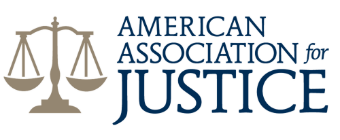Connecticut state law prohibits the vast majority of robocalls and robotexts. Telemarketers who break the law can be held accountable in civil court. If you receive unwanted robocalls, you may be eligible to secure significant financial compensation.
- Win up to $1,500 per illegal call or text
- Stop the calls and hold telemarketers accountable
- Learn more in a free consultation
Our experienced robocall attorneys are here to help. Fill out our online questionnaire to see if you qualify to file a lawsuit.
Our team in Connecticut is excellent - strong, hard-working attorneys who really take their clients' problems to heart.
"Top Notch." Laurence brings creative solutions to the table.
Automated phone calls from businesses that use prerecorded messages aren't just annoying - in many cases, they're also illegal. A federal law called the Telephone Consumer Protection Act (TCPA) bans many of these calls, and in Connecticut, state laws provide further restrictions.

Telemarketers must receive prior express written consent from the recipient of the call before they make a robocall, but this doesn't stop some of them. Illegal calls continue to be a problem. However, consumers have the right to fight back by filing robocall lawsuits - which can pay between $500 and $1,500 for each illegal call, text, and commercial fax.
Connecticut Robocall Laws
In Connecticut, there are two state robocall laws:
Under the first law, unsolicited business, commercial, and advertising messages must disconnect immediately after the recipient of the call hangs up. Violating this law is punishable by up to $500 in civil penalties.
The second law bans the use of autodialers which use prerecorded messages to sell goods and services. There are exceptions for political candidates, their solicitors, political or candidate communities, and tax-exempt nonprofit organizations. Violations of this law are also punishable by a $500 fine for each violation and costs of reasonable attorney's fees.


Federal Law On Robocalls
While most states have their own additional laws which set restrictions on robocalls, the federal TCPA law is in place to protect citizens of all 50 states.
There are several guidelines covered by the TCPA, but the following main points apply specifically to robocalls:
- Robocalls without prior express written consent from the person being called are illegal (except for emergency purposes).
- Calls which engage two or more phone lines of a multi-line business are prohibited.
- Pre-recorded messages must provide the name and contact information of the entity making the call, along with an automated opt-out mechanism so the recipient can revoke their consent.
- Previous consent can be revoked by the consumer in any reasonable way at any time.
- A pre-existing business relationship is not a valid reason for making a robocall without consent.
- Violations of the TCPA are punishable by $500 in fines and up to $1,500 in fines for willful violations.
- Text messages are considered the same as calls and covered under the same rules.
- Unsolicited commercial fax messages are also prohibited without prior express written permission.
About Express Written Permission
Telemarketers can obtain express written permission through either paper forms or electronic means, including:
- Website forms
- Emails
- Telephone keypress
- Recordings of oral consent
If you've never given permission through any of these forms or you've continued to receive calls, texts, or commercial faxes after revoking your consent, you likely have a strong case for a robocall lawsuit against the entity that's been contacting you illegally.
How Can I Sue For Robocalls In Connecticut?
In Connecticut, you can file robocall lawsuits in state court. You'll have the option to recover $500 for every unintentional violation and $1,500 for willful ones. This means that if you were called ten times and the party calling you knew that they were breaking the law, you'd be eligible for $15,000 in compensation. Awards can often be even higher than this, as many companies are serial violators of robocall laws.
In order to get every dollar you're entitled to, you'll need to provide proof for every illegal call, text, and commercial fax. Information which will help prove your case includes:
- Dates and times for every call, text, and fax you suspect was illegal
- The phone numbers for every potentially illegal contact
- The type of phone you were contacted on (cell phone or landline?)
- Was there was a prerecorded message, did you talk to a live operator or both?
- If there was a prerecorded message, was an opt-out mechanism provided?
- Did you continue to receive calls after revoking consent?
- Any other information you think could be relevant
After you've gathered as much information as you can, you should speak with a lawyer about your legal options. Our experienced Connecticut robocall lawyers can help assist you through each step of the process and ensure that you recover the full financial compensation you're entitled to. To find out more about your rights and begin fighting back against illegal robocalls from telemarketers, debt collectors, and others, get in touch with us today for a free consultation.